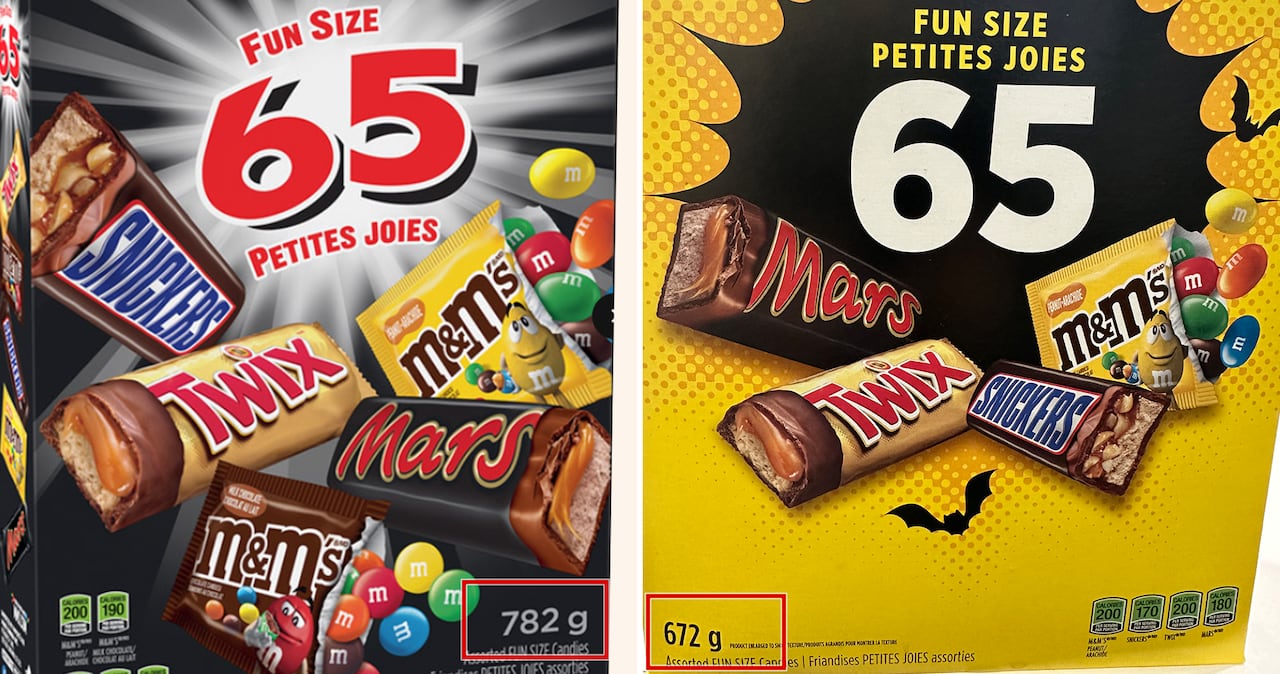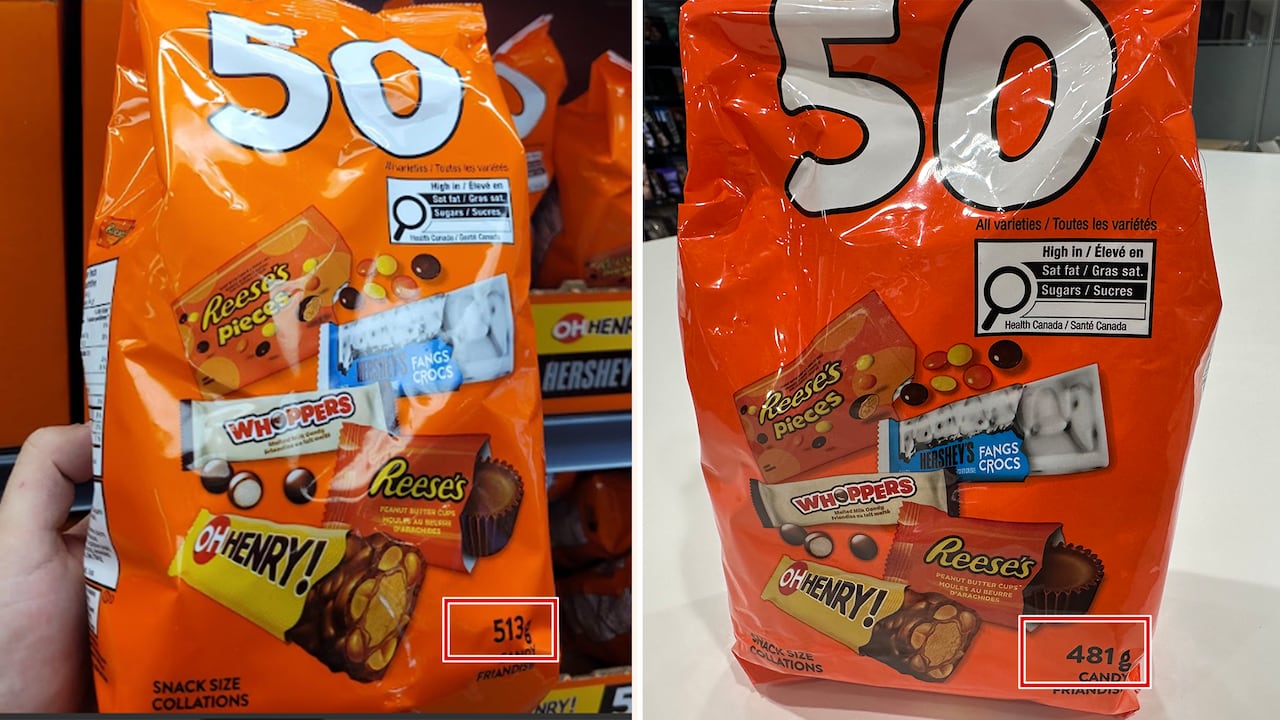Are you being tricked by your treats? Some Halloween candy multipacks have shrunk in size, but not in price

Here's a frightening fact: you might be paying more for your chocolate treats this Halloween due to a recent spike in cocoa prices.
And if you don’t get hit with higher prices, you might still wind up paying more due to shrinkflation, a tactic where companies quietly reduce the weight of a product, but not the price.
After digging up online ads for Halloween candy from October 2024, CBC News discovered two major candy makers, Mars Inc. and the Hershey Company, had reduced the weight of several Halloween chocolate bar variety packs this year — by as much as almost 17 per cent.
The changes might be difficult for shoppers to detect, because this year's variety packs contain the same number of candy bars as they did in 2024.
Both U.S.-based companies said their products may change due to changing customer preferences. Neither provided specific examples.

In other shrinkflation cases, companies have said they reduced a product’s weight to offset higher production costs.
"Companies are always looking for tricks and ways to maintain their profitability while not necessarily changing or increasing the final price consumer sees," said Jordan LeBel, a food marketing professor at Concordia University in Montreal.
But as Canadians struggle with rising grocery prices, there are growing calls for food producers to be upfront about downsizing goods.
“It's not really transparent,” said Sylvie De Bellefeuille, a lawyer with the consumer advocacy group Option Consommateurs. “By at least knowing it [has happened], we can make better informed decisions.”
Chocolate prices soarCocoa prices have more than doubled over the past couple of years, according to the Associated Press.
LeBel says extreme weather conditions in West Africa, the main global supplier of cocoa, triggered bad harvests.
He adds that many cocoa farms are small operations, so they face challenges bouncing back.
"Sometimes those farmers don't have the financial or economic solidity to start anew or replant for example, and that does impact supply," he said.
Prices for confectionery items — including chocolate — increased 10 per cent over the past year, according to Statistics Canada.
Even so, online Halloween ads posted in October 2024 and 2025 at a Toronto No Frills offered the same price — $8.99 — for a Mars “fun size” box of 65 mini-candy bars.
But if you examine the box closely, there is a significant difference: the 2024 box weighs 782 grams, while the current box weighs only 672 grams — a 14 per cent decrease.

After digging up 2024 online ads for other Mars “fun size” packs, CBC News found several cases where the product had shrunk by weight this year — including a 16.8 per cent weight decrease for the 25-candy bar pack.
Mars did not directly answer a question about why it reduced the weight of its products.
“Our focus is on continuing to deliver great value and variety to Canadians while meeting evolving consumer preferences and providing affordable options,” said spokesperson Tamar Nersesian in an email.
She added that “offerings may change from time to time.”

By analyzing ads posted by No Frills in North Bay, Ont., in 2024 and in 2025 for Hershey’s Halloween 50 mini-candy bars pack, CBC News found that the product's weight had dropped by 6.2 per cent. The price, however, hadn't dropped.
CBC also found that Hershey's 100 mini-candy bars pack had also shrunk, by 3.8 per cent.
In an email to CBC News, Hershey spokesperson Todd Scott said the business adjusts its candy assortment mixes periodically to align with consumer preferences, and that those changes “can have an impact on weight.”
What can be done about shrinkflation?Several countries, including France and Brazil, require manufacturers or supermarkets to alert shoppers when products shrink by weight or volume.
Consumer advocate De Bellefeuille suggests the Canadian government require food producers to notify shoppers on the product packaging when such a change is made.
“If they simply want to sell [it] for the same price, but a smaller amount, at least announce it for a certain period of time so that people are aware,” she said.
But LeBel says monitoring such a requirement could be complicated.
“How will you police it?” he said. “What will be the penalties for those who don't respect those new guidelines or regulations?”
Last year, Innovation, Science and Economic Development (ISED) Canada told CBC News it was funding several research projects into retail practices, including shrinkflation, that are harmful to Canadians.
CBC News requested an update on Wednesday, but ISED did not respond in time for the publication of this story.
cbc.ca





